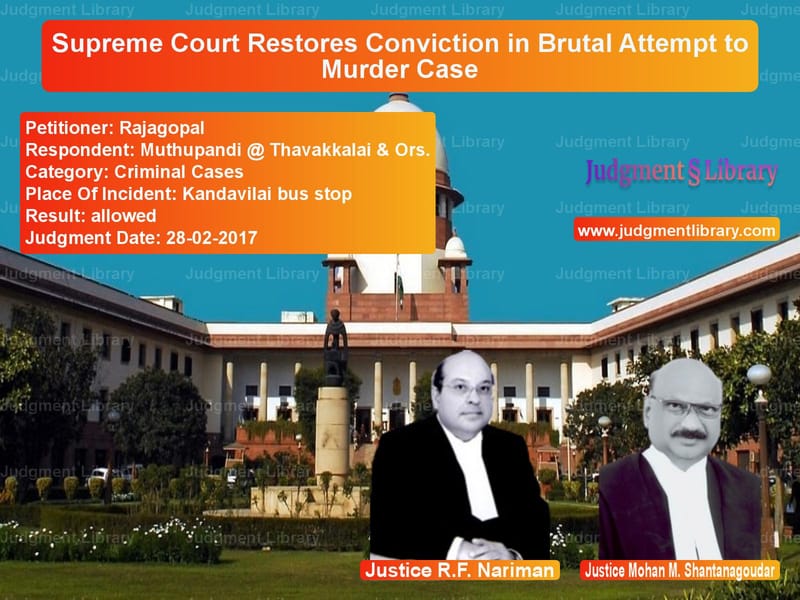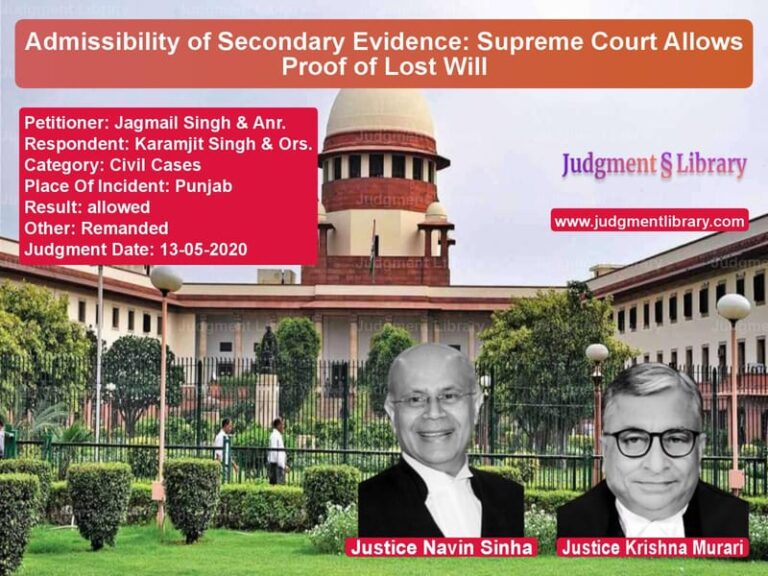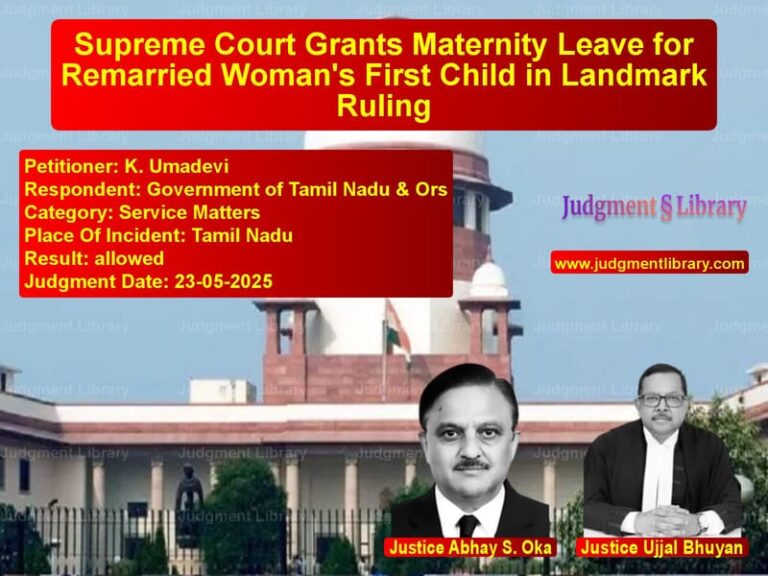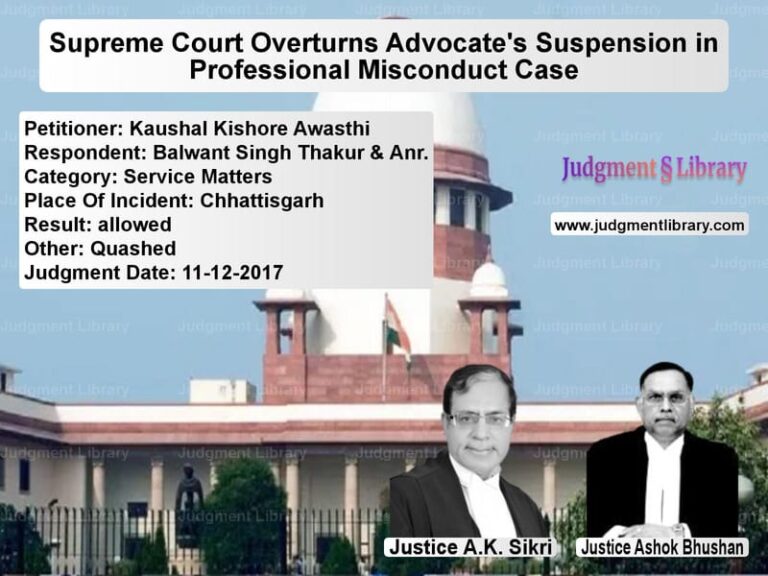Supreme Court Restores Conviction in Brutal Attempt to Murder Case
The case of Rajagopal vs. Muthupandi @ Thavakkalai & Ors. revolves around a violent attack that took place on November 6, 1999. The appellant, Rajagopal, was attacked by five accused persons armed with deadly weapons at the Kandavilai bus stop. This brutal assault left him with 12 serious injuries, including fractures of the skull, legs, and wrist, ultimately leading to the amputation of both legs.
The trial court had convicted all five accused under Section 148 and Section 307 read with 149 of the IPC, sentencing them to seven years imprisonment and imposing a fine of ₹5,000 each. However, the High Court overturned this conviction, citing various reasons for acquittal.
Petitioner’s Arguments
Rajagopal, the complainant and an injured eyewitness, provided detailed testimony about the role of each accused. His evidence remained unshaken in cross-examination. The prosecution also presented medical evidence corroborating the severity of the injuries.
Advocate V. Prabhakar, appearing for the appellant, argued that the High Court’s decision was erroneous, as it did not discredit the direct evidence of the injured eyewitness. He emphasized that the trial court had thoroughly examined the case, and the High Court should not have interfered.
Respondent’s Arguments
Senior Counsel Kathirvelu, representing the accused, contended that the High Court had rightly acquitted the accused by pointing out key lapses in the prosecution’s case. He highlighted delays in filing the FIR and inconsistencies in the investigation. The defense also argued that as several prosecution witnesses had turned hostile, reasonable doubt existed regarding the accused’s guilt.
Supreme Court’s Observations
The Supreme Court, comprising Justices R.F. Nariman and Mohan M. Shantanagoudar, held that the High Court had erred in acquitting the accused. The Court made the following key observations:
- PW-1 (the complainant) provided a consistent and credible account of the attack, which was supported by medical evidence.
- The direct evidence of an injured eyewitness holds significant weight in criminal cases.
- The delay in filing the FIR was adequately explained and did not weaken the prosecution’s case.
- Hostile witnesses do not necessarily weaken the case when strong direct evidence is present.
- The High Court failed to analyze the detailed testimony of the complainant, making its decision untenable.
Final Judgment
The Supreme Court overturned the High Court’s acquittal and reinstated the conviction and sentence imposed by the trial court. The accused were directed to surrender within two weeks to serve their remaining sentence.
This case highlights the importance of direct eyewitness testimony, especially when supported by medical evidence, in securing justice. The Supreme Court’s ruling ensures that the perpetrators of this brutal attack face the consequences of their actions.
Don’t miss out on the full details! Download the complete judgment in PDF format below and gain valuable insights instantly!
Download Judgment: Rajagopal vs Muthupandi @ Thavakk Supreme Court of India Judgment Dated 28-02-2017.pdf
Direct Downlaod Judgment: Direct downlaod this Judgment
See all petitions in Attempt to Murder Cases
See all petitions in Bail and Anticipatory Bail
See all petitions in Judgment by Rohinton Fali Nariman
See all petitions in Judgment by Mohan M. Shantanagoudar
See all petitions in allowed
See all petitions in supreme court of India judgments February 2017
See all petitions in 2017 judgments
See all posts in Criminal Cases Category
See all allowed petitions in Criminal Cases Category
See all Dismissed petitions in Criminal Cases Category
See all partially allowed petitions in Criminal Cases Category







